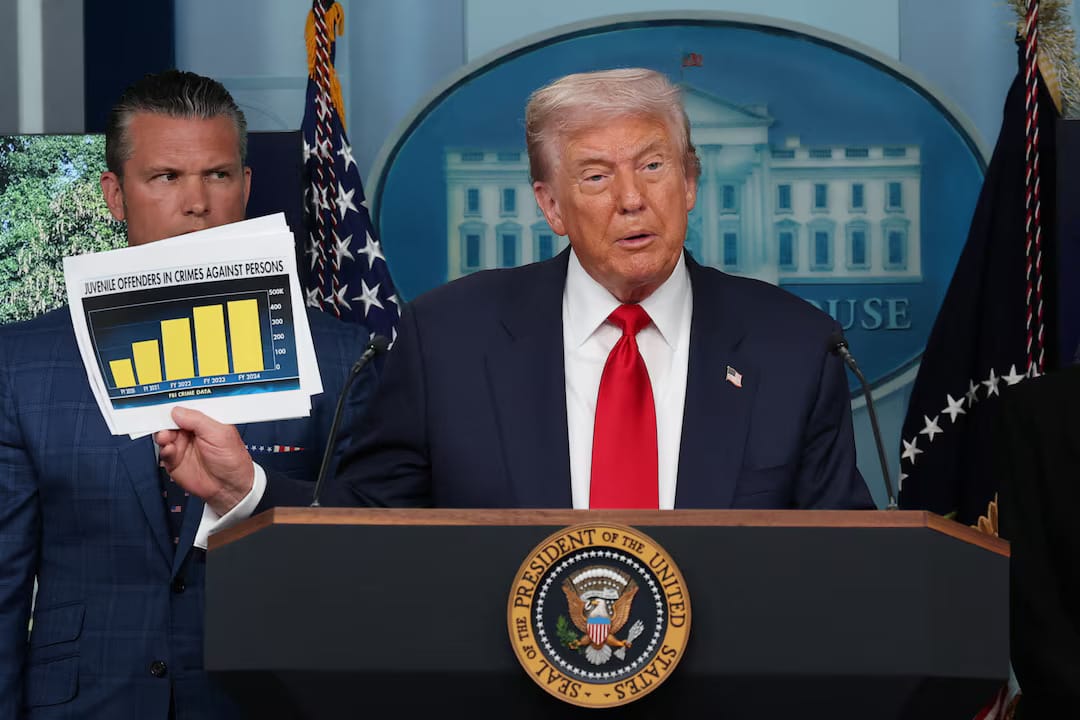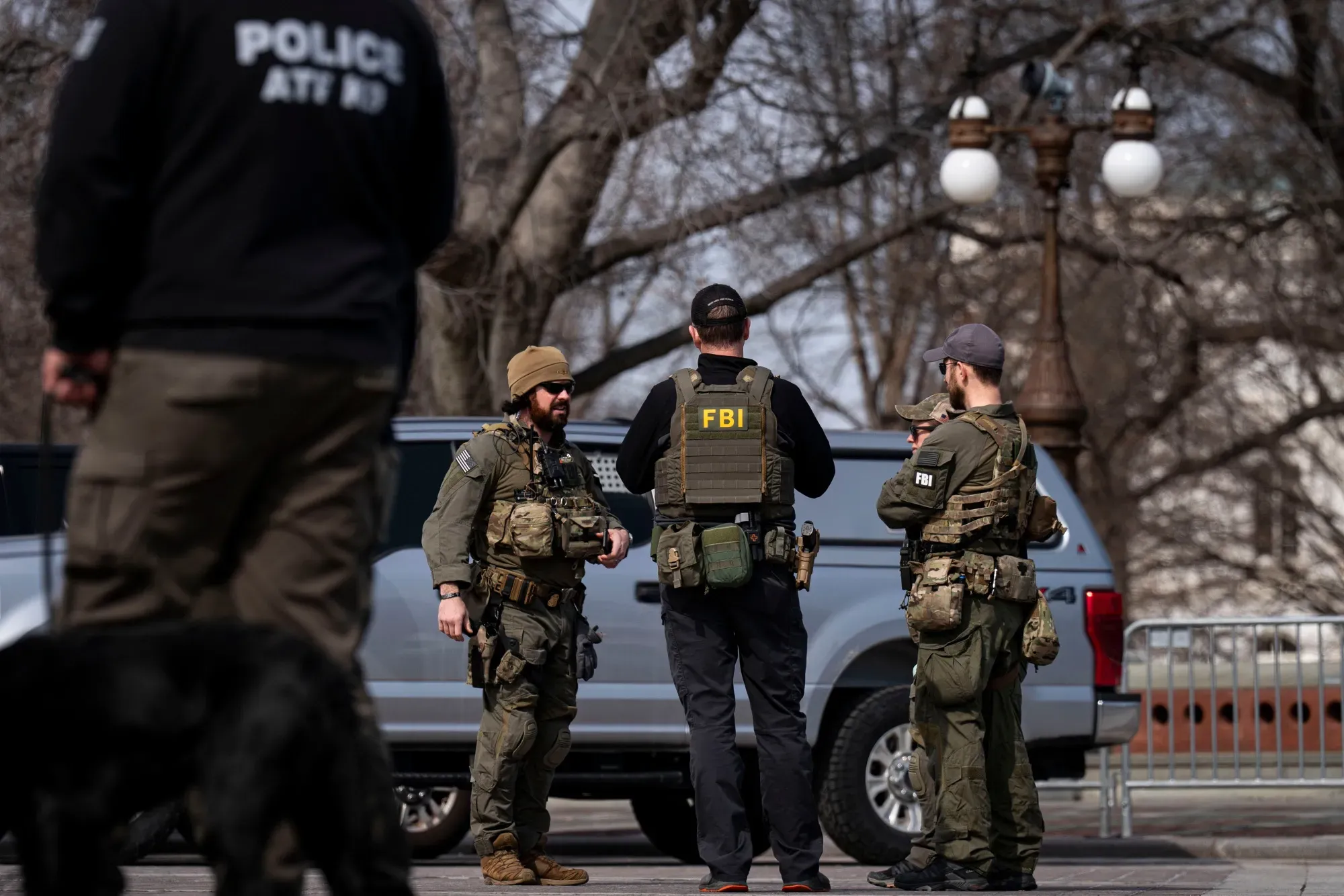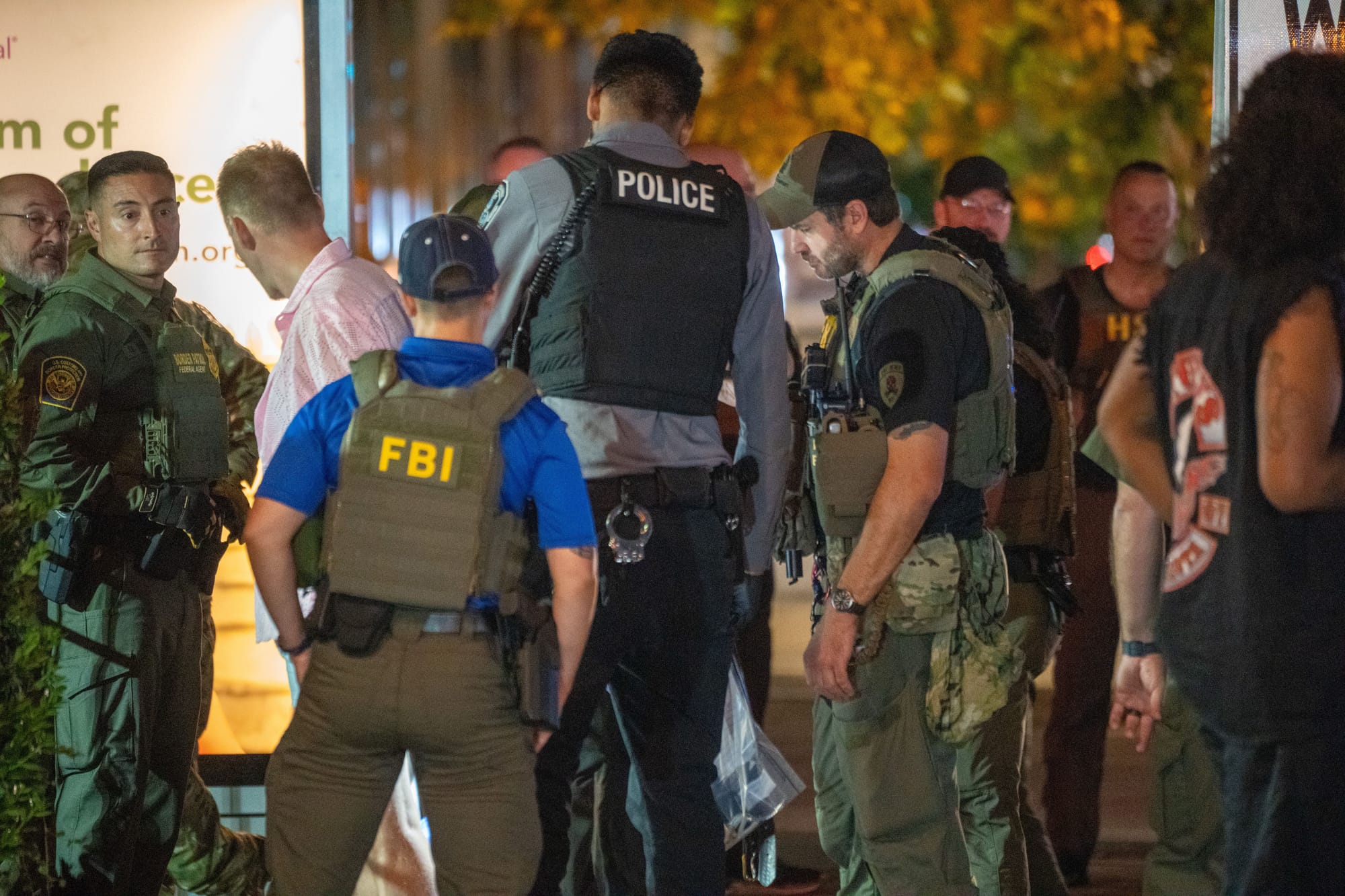Trump Federalizes DC Police: A Constitutional Minefield and a Democratic Crisis
In a move with profound legal and political implications, President Trump has declared a "public safety emergency" and taken control of the D.C. police, deploying the National Guard.

Written by Lavanya, Intern, Allegedly The News
WASHINGTON, August 12, 2025
In a move that has ignited a firestorm of controversy and raised fundamental questions about the balance of power in the United States, President Donald Trump has asserted federal control over the District of Columbia’s police force. Citing what he described as a "lawless" and "unsafe" capital, the president is leveraging a contentious provision within the District of Columbia Home Rule Act to place the Metropolitan Police Department (MPD) under the direct command of his administration. This action, which also includes the deployment of the D.C. National Guard, has sparked immediate outrage from local officials and legal scholars, who argue it's an authoritarian power grab aimed at consolidating political control and suppressing dissent.
The timing of this intervention is particularly notable. While the president has repeatedly expressed concern about crime in Washington, D.C., and has called for a federal takeover, official data tells a different story. According to the D.C. police department's own statistics, violent crime in the city is down significantly from a peak in 2023, with homicides and carjackings both showing a decline. This discrepancy has fueled accusations that the president's decision is not a genuine response to a public safety crisis, but rather a politically motivated action designed to project an image of "law and order" leadership ahead of a pivotal election.
The Legal and Constitutional Quake
The legal foundation for the president's action is Section 740 of the District of Columbia Home Rule Act of 1973. This landmark legislation granted D.C. residents a degree of self-governance by allowing them to elect a mayor and a city council, but it did not grant D.C. full statehood. Crucially, the act retained Congress's ultimate authority over the District and included a provision allowing the president to take temporary control of the MPD in "conditions of an emergency nature which require the use of the Metropolitan Police force for federal purposes."
The crux of the legal debate centers on whether the current situation in D.C. meets the standard of a bona fide "emergency." D.C. Mayor Muriel Bowser has publicly disputed the president's characterization of the city, highlighting the downward trend in crime rates and arguing that no such emergency exists. Legal experts are quick to point out that the statute's language is vague and open to interpretation, making it ripe for legal challenges. A lawsuit from the D.C. government is almost certain, with plaintiffs arguing that the president's actions constitute an unlawful overreach and an abuse of executive power.
This move also directly challenges the principles of federalism and the separation of powers. Federalism, the division of power between the federal and state governments, is the bedrock of the American system. While D.C. is not a state, the Home Rule Act was intended to grant it a measure of autonomy akin to a state or local government. The president’s action effectively nullifies that autonomy, placing a local police force under direct federal command. The separation of powers is also strained, as the president, head of the executive branch, is now wielding control over what would typically be a local, democratically accountable institution. This blurring of lines raises concerns about the integrity of the system and the potential for a dangerous precedent.

First Amendment Rights and the Right to Assemble
One of the most immediate and tangible consequences of the federal takeover is the potential impact on First Amendment rights. With the MPD now under federal control, the police response to public demonstrations and protests is likely to change. In the past, the D.C. police have, for the most part, managed large-scale protests with a focus on de-escalation and protecting the rights of demonstrators. Under federal command, however, there is a risk of a more aggressive, less-accommodating approach.
This concern is not without precedent. During the George Floyd protests in 2020, President Trump’s administration deployed federal law enforcement, including agents from the U.S. Park Police and U.S. Marshals, to crack down on protesters. Their heavy-handed tactics, including the use of tear gas and other crowd control measures to clear a path for a presidential photo-op, were widely condemned. Many fear that the current federal takeover of the MPD could lead to a repeat of this situation, where the police force is used not to protect the public, but to suppress political dissent and enforce the administration's will. The specter of federal agents with no accountability to local authorities patrolling the streets of the nation’s capital is a deeply unsettling prospect for civil liberties advocates.
History of National Guard Deployments in the Capital
The deployment of the National Guard in Washington, D.C., is not a new phenomenon. The D.C. National Guard is unique in that it reports directly to the president, not a state governor. This has led to its deployment in a number of historical contexts, including the 1968 riots following the assassination of Martin Luther King Jr. and the protests of 2020. However, the nature of this current deployment is what sets it apart.
In previous instances, the Guard was often called in to supplement local police in response to a clear and present threat of violence and unrest. This time, the president is deploying the Guard as part of a preemptive, sweeping action to address a crime problem that D.C.'s elected leaders insist is already being managed. This is a crucial distinction. It transforms the Guard from a reactive force responding to a specific crisis into a proactive tool for a president seeking to impose his will on a local jurisdiction.
Experts are divided on the implications. Some, particularly those sympathetic to the administration, argue that the president, as commander-in-chief and the ultimate authority over D.C., has a responsibility to ensure the capital's safety. They contend that the D.C. government has failed to do so and that this is a necessary intervention.
Others, including constitutional scholars and civil rights activists, see the move as a dangerous step towards the normalization of using military and federal police to enforce political will. They argue that the president's actions are not about safety but about sending a message to other cities and states with which he disagrees. "This is a deliberate conflation of domestic law enforcement with federal power," one legal analyst noted, "and it’s a dangerous path for our democracy."
The Political Tug-of-War
The conflict over the control of the D.C. police is the latest and most dramatic chapter in a long-running political battle between the District and the federal government. For decades, D.C. residents have fought for greater autonomy, including statehood, to escape the constitutional limbo of being governed by a Congress in which they have no voting representation. The Home Rule Act of 1973 was a step in that direction, but it left a critical weakness: the president's ability to intervene in local affairs.
This intervention is a direct slap in the face to D.C.'s democratic aspirations. It tells the city's residents that their elected officials' authority is conditional and can be swept away by a federal administration. The political fallout is likely to be significant. D.C. officials, including Mayor Bowser and Congresswoman Eleanor Holmes Norton, are expected to use every legal and political tool at their disposal to fight the takeover. This will further highlight the city's lack of true self-governance and could galvanize support for the D.C. statehood movement, which has gained traction in recent years.
Globally, the reaction has been one of concern and bewilderment. International media outlets are reporting on the situation as an unusual, if not unprecedented, power play by a democratic leader. Many are framing it as an erosion of democratic norms, pointing to a similar pattern of leaders in other countries using federal power to consolidate authority at the expense of local governance. This global scrutiny adds another layer of pressure to the situation and could influence how the public and the courts view the president's actions.

Forecasting the Fallout: Legal, Political, and Public Scenarios
The immediate future is highly uncertain, but a few scenarios are likely to play out:
Scenario 1: Legal Battle
The D.C. government will likely file an emergency injunction to block the federal takeover. The case would move quickly through the federal court system, potentially reaching the Supreme Court. The outcome will hinge on the court’s interpretation of "emergency" in the Home Rule Act and whether the president’s action is deemed a legitimate exercise of executive power or an unconstitutional overreach. A court ruling against the president would be a significant check on his authority, while a ruling in his favor would set a dangerous precedent.
Scenario 2: Escalating Protests
If the federalized police force takes a hardline approach to protests, it could lead to increased public anger and more frequent and larger demonstrations. This could create a cycle of police action and public reaction, potentially leading to violence and making the city feel less safe, ironically, the opposite of the president's stated goal. This would be a political nightmare for all involved and could become a central issue in the upcoming election.
Scenario 3: Political Backlash
Even if the legal challenges fail, the political fallout could be severe. The action has already drawn strong condemnation from Democrats and could alienate moderate voters who are uncomfortable with the use of federal power to undermine local governance. The perception of an overreaching federal government could mobilize voter turnout against the administration.
Final Thoughts: A New Normal for Federalism?
President Trump's federalization of the D.C. police is not merely a localized event; it is a test of the American constitutional system. It pits the executive branch against a local government, challenging the long-held tradition of federalism and the limited power of the president in domestic affairs. The outcome of this struggle will not only determine the future of Washington, D.C.'s governance but will also establish a precedent for how much authority a president can wield over cities and states in the future. The question is whether this marks a temporary anomaly or a permanent shift towards a more centralized and top-down model of governance in the United States.
What do you think?
Given the president's ability to declare a "public safety emergency," how can a local government effectively challenge such a claim when crime data is ambiguous or disputed? In a nation founded on principles of federalism, what does this incident suggest about the future relationship between the federal government and its cities?
Sources
The Hindu, CBS News, PBS News, The Guardian, House.gov (Congresswoman Eleanor Holmes Norton's office), Coverage by NPR/WAMU showing FBI and federal agents patrolling near Nationals Park, D.C., News coverage from Spectrum News / Associated Press (AP), The Washington Post.




